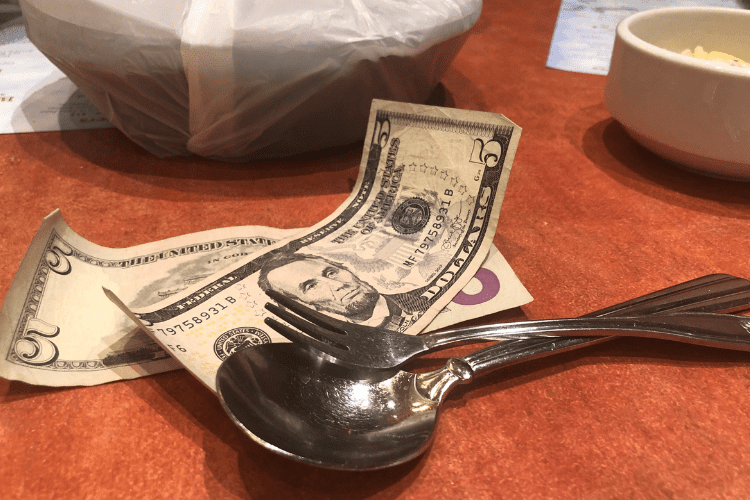Here’s How Tax-Free Tips Could Impact Our Economy

With the 2024 presidential race heating up, it’s anyone’s guess who’ll be in the Oval Office by the end of this year.
The country is as polarized as ever, and the two candidates have drastically different policies except for one: eliminating taxes on tips.
This bipartisan proposal has been gaining attention on both sides of the political aisle, especially among service workers excited to keep more of their hard-earned cash.
But will this policy really help the average American?
Let’s dive into the details and see what the experts are saying.
How Are Tips Currently Being Taxed?
The federal government requires service employees to report tips to their employer if they made over $20 that month. These tips will count as another part of your income, which means you’ll owe more federal, state, and payroll taxes at the end of the year.
Roughly 50% of tipped workers make less than $32,000 annually and pay approximately $2,000 in taxes if they don’t qualify for other tax incentives like the Earned Income Tax Credit (EITC) or the Child Tax Credit. Workers who qualify for one of these programs won’t need to pay federal taxes.
What The Presidential Candidates Are Proposing
The tax-free tip policy came to light when Donald Trump announced it in his recent speech in Las Vegas. Fast-forward a week, and vice-president Kamala Harris expressed a similar view and added it to her campaign platform.
The bipartisan proposal wants to ease the financial burden of service workers nationwide.
For example, let’s look at a server who makes $45,000 a year and doesn’t qualify for a tax credit. Right now, they must pay a 22% federal tax rate plus more if they owe state taxes.
But if their $20,000 tips were tax-free, they could claim it on their tax form each year, fall into a lower bracket, and pay thousands of dollars less each year.
So far, neither candidate has gone into the details of their new policy, but several bills are already gaining traction that would make this a reality.
How Will This Policy Impact The Economy?
Eliminating tip taxes seems like a win-win on paper. You keep more of your paycheck and pay less yearly taxes.
However, the overall effect on the country’s economy could be massive, especially with our growing deficit. Recent estimates suggest that making tips tax-free could cost the government up to $250 billion over the next decade if the government doesn’t compensate for the added costs.
Some also argue that this move would force non-tipped workers to fill in the gaps and foot the bill for tipped workers. Other workers might also request their employers to shift some of their income to tips to take advantage of the changes.
Why Experts Are Divided On Tax-Free Tips
Many experts are divided on whether this new policy will make a difference.
Service workers could see a bump in their paychecks each year, especially if you’re on the higher end of the scale. Paying taxes on $20k instead of $50 could save them thousands of dollars.
However, not everyone is convinced of these new measures. Many critics say they’ll give the government an excuse not to raise the minimum wage for tipped workers.
In some states, employers will still get away with paying $2.13 an hour and rely on tips to fill the gap. And if you’ve worked in hospitality before, you know that some slow days might mean walking away with your hourly wage, and that’s it.
The Bottom Line
No matter where you stand, tax-free tips are becoming a big talking point in this election.
Only time will tell how the winning candidate elaborates and implements their plan without hurting the country’s economy.
Read more:









